The discovery of 81 bales of cocaine will land a "major financial blow" to illegal drug market, the police commissioner says.
New Zealand authorities have intercepted more than three tonnes of cocaine floating in the Pacific Ocean - the largest find by "some margin".
A media conference was held at Police National Headquarters detailing the bust.
Operation Hydros - a joint mission by police, Customs and the Defence Force - seized 81 bales of the drug, totalling 3.2 tonnes, with an estimated street value of half a billion dollars.
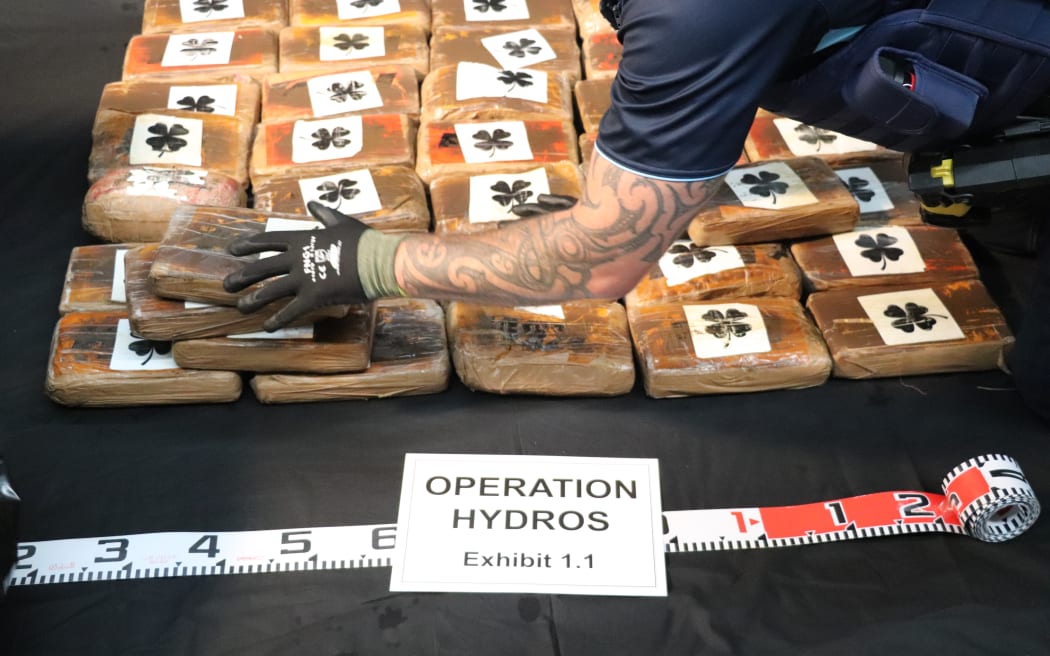
3.2 tonnes of cocaine was seized in Operation Hydros. Photo: NZ Police / Supplied
The shipment is destined for destruction, having since made the six-day journey back to New Zealand aboard the Royal New Zealand Navy vessel HMNZS Manawanui.
Police Commissioner Andrew Coster said given the large size of the shipment it would have likely been destined for the Australian market.
There was enough cocaine to service the Australian market for one year - or the New Zealand market for 30, he said.
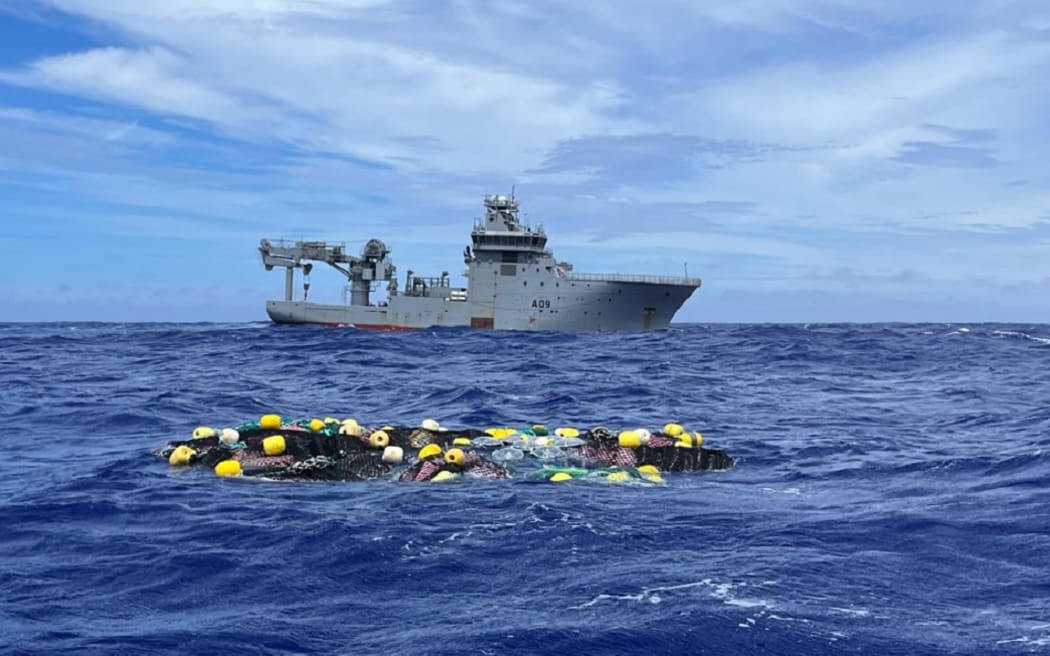
The cocaine was intercepted in the Pacific Ocean. Photo: NZ Police / Supplied
"There is no doubt this discovery lands a major financial blow right from the South American producers through to the distributors of this product," Coster said.
READ MORE
- Half a billion dollars worth of cocaine found adrift in Pacific Ocean
- Cocaine worth $300 million with batman stickers found floating in New Zealand
"This is one of the single biggest seizures of illegal drugs by authorities in this country. While this disrupts the syndicate's operations, we remain vigilant given the lengths we know these groups will go to circumvent coming to law enforcement's attention."
Operation Hydros started in December 2022, as part of the police's ongoing work with international partner agencies to identify and monitor suspicious vessels' movements, he said.
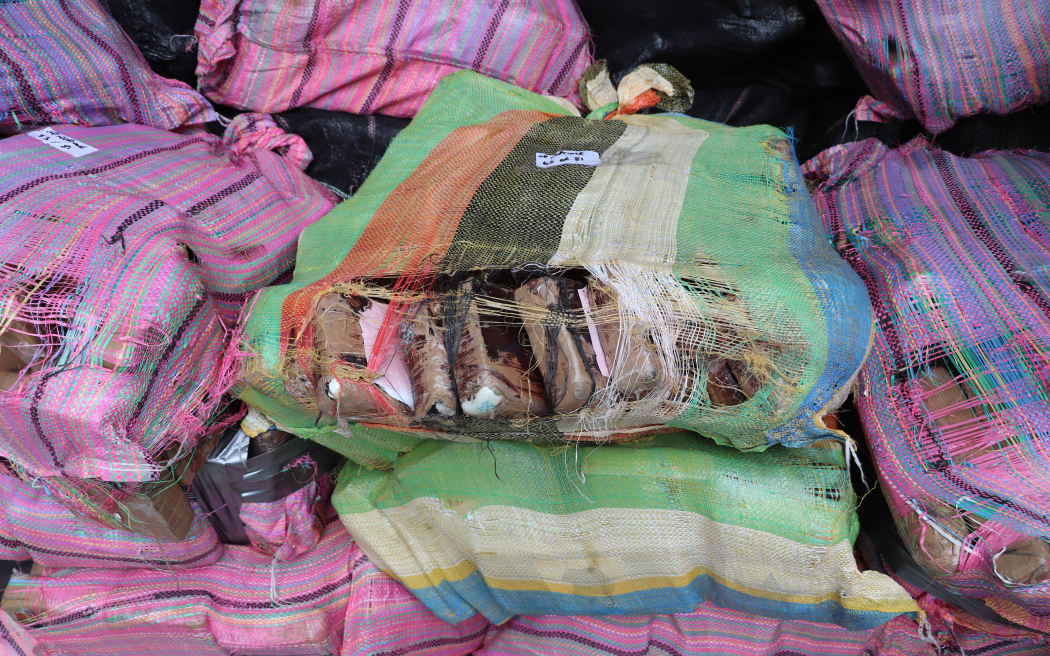
The drugs founds have an estimated street value of half a billion dollars. Photo: NZ Police / Supplied
"I am incredibly proud of what our National Organised Crime Group has achieved in working with other New Zealand agencies, including New Zealand Customs Service and the New Zealand Defence Force. The significance of this recovery and its impact cannot be underestimated."
While no arrests have been made at this stage, enquiries were continuing internationally.
Police National Organised Crime Unit head Greg Williams said the cocaine was found set up in a net with flotation devices in international waters.
The packaging had trademark logos of a bat and a four-leaf clover on it and he would not comment on how police came to know the cocaine was there.
It was not an uncommon way for drugs to be transported, and they would float in the water until they were picked up by someone.
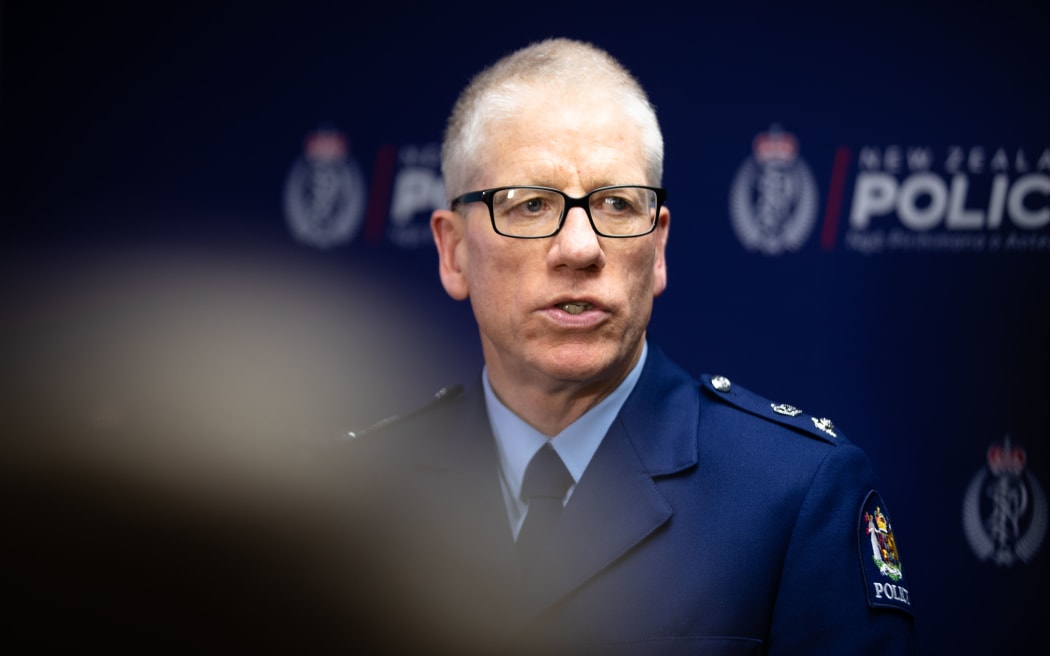
Police National Organised Crime Unit head Greg Williams. Photo: RNZ / Dan Cook
Williams said police were working really hard to understand who was behind it - and they had a "good sense" of what international cartels were doing.
"That's really critical to the work we need to do, along with Customs, and again with Defence, intercepting the flow of these drugs."
He said New Zealand was "not a cocaine market", with usage decreasing to about 1.7 kilograms a week.
Australian authorities are "exceptionally pleased that we have taken this step," he said.
New Zealand Customs Service acting comptroller Bill Perry said his agency was pleased to have "helped prevent such a large amount of cocaine causing harm in communities here in New Zealand, Australia and elsewhere in the wider Pacific region".
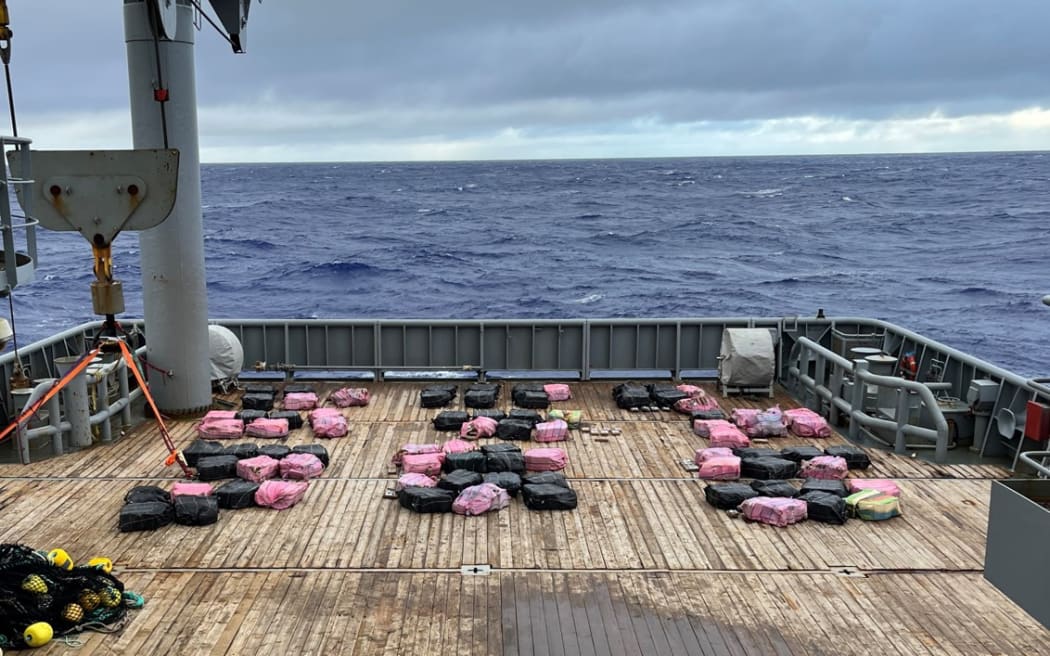
No arrests have been made yet. Photo: NZ Police / Supplied
"The sheer scale of this seizure is estimated to have taken more than half a billion dollars' worth of cocaine out of circulation.
"It is a huge illustration of what lengths organised crime will go to with their global drug trafficking operations and shows that we are not exempt from major organised criminal drug smuggling efforts in this part of the world," he said.
Perry said Covid-19 had switched things up, constricting air and commercial movement.
"We see perhaps this is just an indication that the trans-national organised crime groups are testing the markets in different ways.
"As agencies, we need to collaborate. It's evidenced here today that when we collaborate in the right space we do get some phenomenal results."
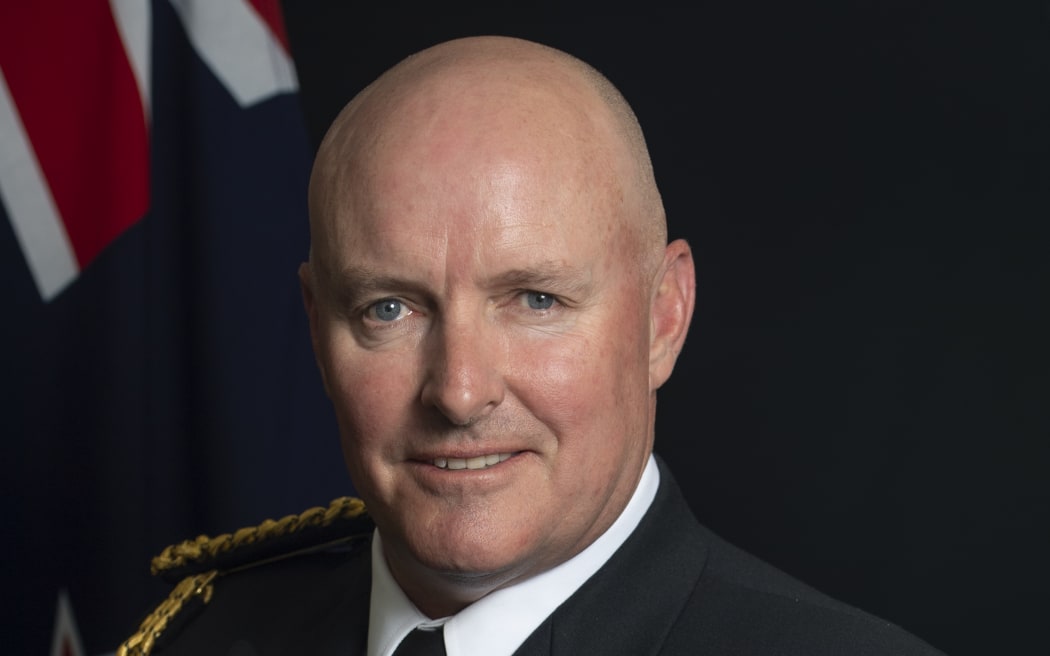
New Zealand Defence Force joint forces commander Rear Admiral Jim Gilmour. Photo: Supplied / NZDF
New Zealand Defence Force joint forces commander Rear Admiral Jim Gilmour said they had "the right people and the right capabilities to provide the support required".
"We were very pleased with the result and are happy to be a part of this successful operation and are proud to play our part in protecting New Zealand."
Gilmour said it was "very important" to understand what is happening around New Zealand's maritime domain.
"If we are going to be dealing with trans-national crime, illegal fisheries or any other threat to New Zealand's national security, maintaining that awareness of what's going on in the maritime domain is very important and our abilities to be able to respond within it."




